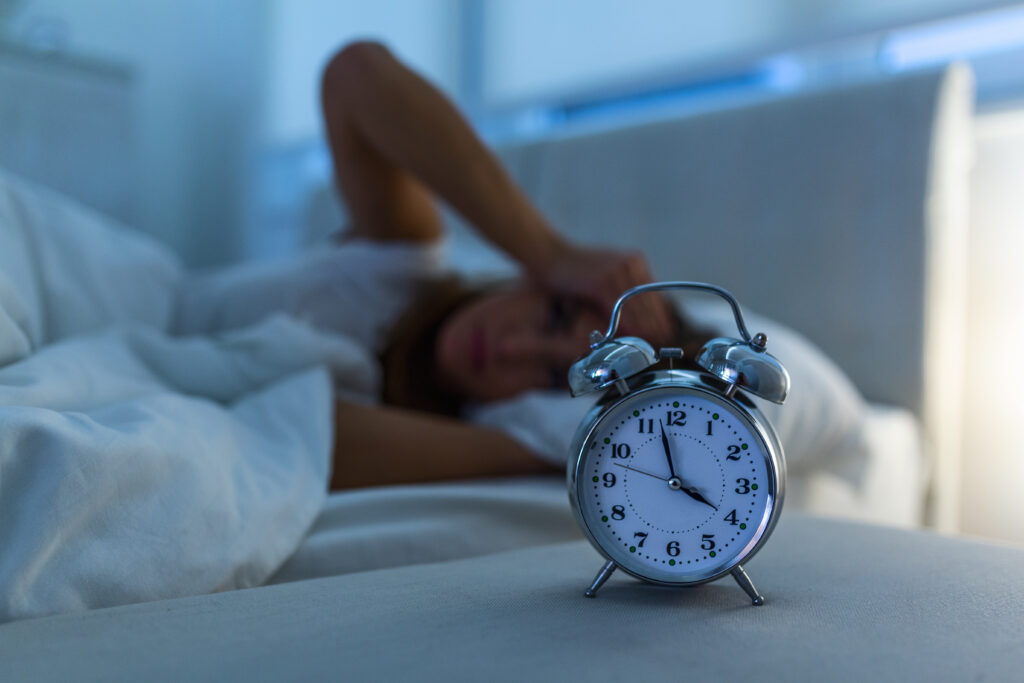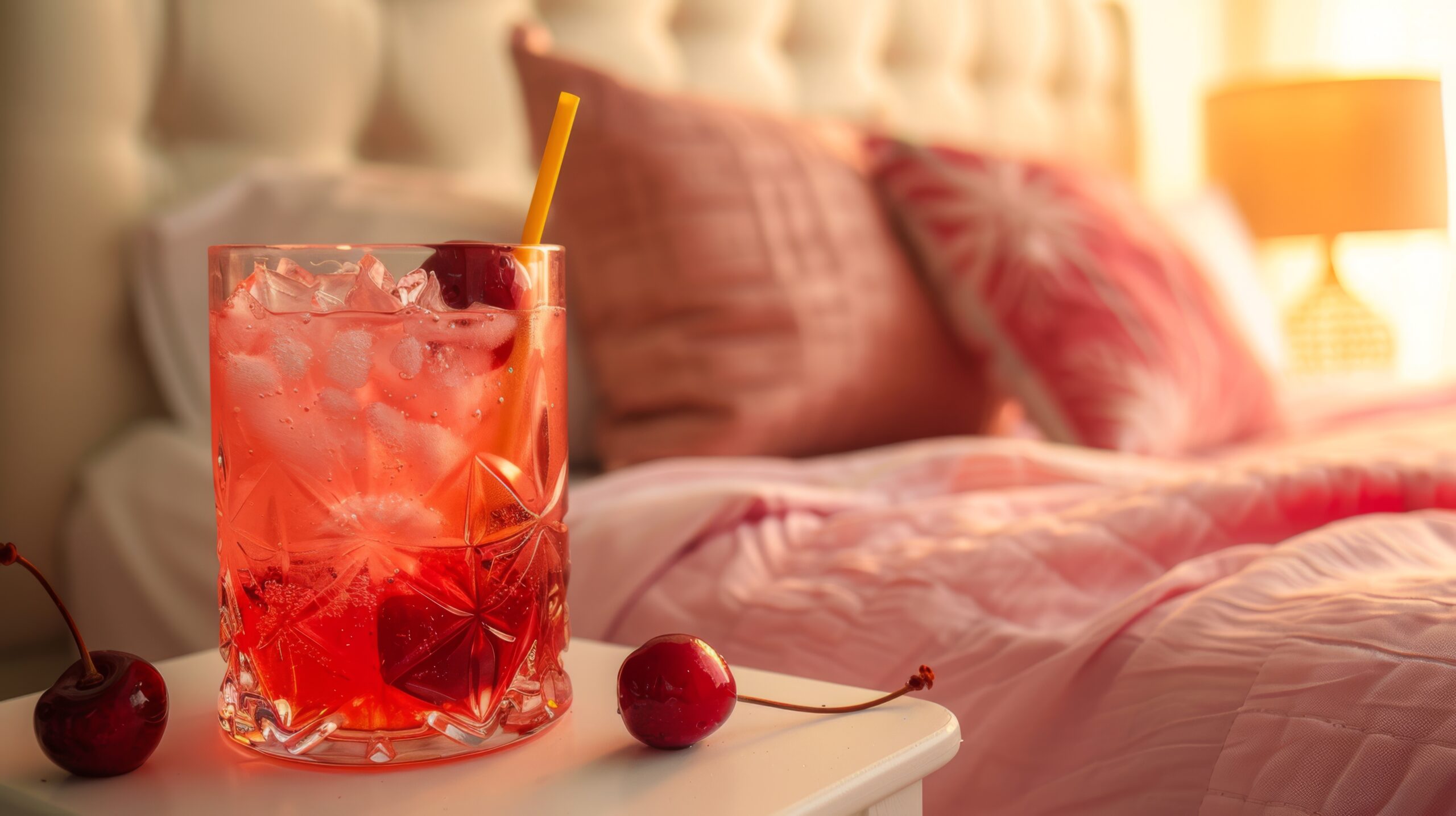Struggling to get a good night’s sleep? You’re not alone. Whether it’s racing thoughts, restlessness, or simply not feeling tired, sleep doesn’t always come easily—and that can take a toll. Over time, poor sleep can impact everything from your mood and focus to your heart health and immune system.
That’s why more people are exploring foods that help you sleep naturally, like tart cherry juice, magnesium, kiwi, milk, and walnuts. One popular TikTok trend, known as Sleep Maxxing, highlights simple ways to support sleep—without the need for prescriptions or sleeping pills.
What Is Sleep Maxxing and Why Is It Trending?
Sleep Maxxing is all about enhancing your sleep quality using easy, everyday habits. At the center of this trend is the Sleepy Girl Mocktail—a fizzy mix of magnesium powder, tart cherry juice, and sparkling water that’s become a popular nighttime drink on social media.
It’s not surprising the trend is taking off. Many people are having trouble sleeping, whether it’s falling asleep, staying asleep, or waking up too early. Around 1 in 3 adults worldwide experience insomnia symptoms. Sometimes it’s occasional and short-lived, like when you’re stressed or your schedule’s out of sync. Other times, it becomes a longer-term issue that affects your energy, mood, and overall health.
When sleep problems stick around for a while, they may be more than just a rough night or two. According to the American Academy of Sleep Medicine insomnia is diagnosed when someone has difficulty sleeping at least three nights a week for three months or more—and that lack of sleep starts to interfere with your day. You might feel drained, irritable, unfocused, or emotionally overwhelmed.
That said, not everyone who struggles with sleep has chronic insomnia. Some people just need help adjusting their routines or calming their minds before bed. That’s where Sleep Maxxing fits in. It’s not a cure or medical treatment, but it taps into something real: the desire for better sleep through simple, natural changes. Whether it’s sipping tart cherry juice, trying magnesium, or winding down with a calming tea, Sleep Maxxing reflects how people are looking for small, manageable ways to feel better—starting with rest.
How Sleep Affects Your Health

Sleep isn’t just downtime—it’s essential maintenance for your body and brain. When you’re sleep-deprived, it doesn’t just show up as grogginess or crankiness. Over time, not getting enough sleep can raise your risk of serious health problems, including:
- Weight gain
- Fatigue
- High blood pressure
- Type 2 diabetes
- Stroke
- Alzheimer’s disease
- Depression
Sleeping is an important part of your health puzzle. During deep sleep, your brain clears out toxins, repairs tissues, and helps reset hormones that influence everything from mood to metabolism. Prioritizing rest isn’t just good self-care—it’s a form of preventive health.
The Sleepy Girl Mocktail: A Closer Look
Back to the ‘Sleepy Girl Mocktail. There are variations of the recipe but at it’s core, it’s a simple recipe made with just three ingredients:
- Club soda
- Tart cherry juice
- Magnesium supplement
The drink looks fun and tastes light and fizzy, but its popularity has more to do with what’s inside. Both tart cherry juice and magnesium are tied to sleep support. Here’s a closer look at how each one works.
What Magnesium Might Do for Sleep
Magnesium is a mineral that plays a role in muscle relaxation and nervous system regulation. It’s involved in supporting the production of GABA, a neurotransmitter that helps calm brain activity. When GABA levels are balanced, your body is better able to relax. When you are more relaxed, you may be able to fall asleep faster and easier.
However, there are many types of magnesium supplements. Some options available in stores are Magnesium chloride, magnesium citrate, magnesium L-aspartate, and inorganic forms of magnesium. Each type also has different recommended amounts, different results, and might have different side effects for you. Ask your doctor which type of magnesium is best for you.
Tart Cherry Juice For Melatonin Support
Tart cherry juice contains natural melatonin, which is the hormone your body produces to help regulate your sleep-wake cycle. Drinking it in the evening might help increase melatonin levels and support more restful sleep.
Some small studies have shown that tart cherry juice can improve sleep duration and quality, particularly in older adults. But results vary, and not all brands or cherry varieties contain the same levels of melatonin. Look for unsweetened tart cherry juice and give it a few nights to see how your body responds.
Be mindful of which type of tart cherry juice you buy. Different cherry varieties are thought to have higher melatonin concentrations. Some brands or sources may work better for you than others.
Mocktails Not Your Thing? Try These Bedtime Foods
Let’s say you’re not into fizzy drinks or you’re looking to mix it up. The good news is, there are other foods you can try that may help your body wind down and prepare for sleep.
Kiwi: A Sweet Sleep-Supporting Fruit
Kiwi is packed with vitamins C, E, and folate, all of which play roles in reducing oxidative stress and improving sleep quality. Research suggests that eating two kiwis about an hour before bed may help you fall asleep faster and stay asleep longer. It’s sweet, low-calorie, and naturally full of antioxidants. Bonus: it’s easy to grab and go.
Milk: A Classic Bedtime Drink
Whether served cold or warmed, milk contains tryptophan—an amino acid that helps produce serotonin and melatonin. It also includes peptides that may regulate GABA, which helps calm the nervous system.
Ginseng Tea: A Herbal Relaxer
If dairy isn’t your thing, ginseng tea might be your bedtime vibe. Ginseng is often used in traditional medicine as an adaptogen, meaning it helps the body manage stress. Some research suggests ginseng may calm the nervous system and support sleep, especially for those experiencing stress-related sleep issues.
Note: Ginseng can interact with some medications, so talk to your provider before using it regularly.
Walnuts: A Sleep-Friendly Snack
Snackers, this one’s for you. Walnuts are one of the few plant-based foods that naturally contain melatonin. They also provide healthy fats and anti-inflammatory compounds that support brain and hormone health.
You don’t need to eat them at bedtime and snacking on about a quarter cup earlier in the day may still support your body’s sleep rhythms.
Let’s Keep It Real
These foods that help you sleep are simple tools—not cures. Sleep issues can sometimes be linked to anxiety, hormone imbalances, or sleep disorders like sleep apnea. But if your sleep struggles aren’t tied to a larger medical issue, small changes like these may help create the right environment for rest.
If you’re dealing with long-term insomnia, waking up multiple times a night, or feeling chronically exhausted despite eight hours in bed, it’s a good idea to talk to your provider. There may be an underlying cause that needs to be addressed, from anxiety to hormone imbalances to sleep apnea.

